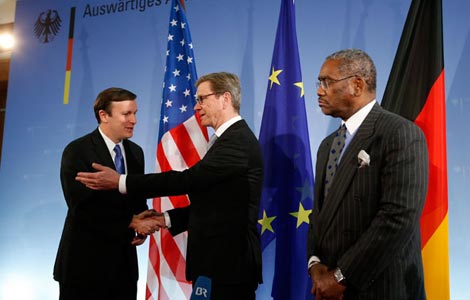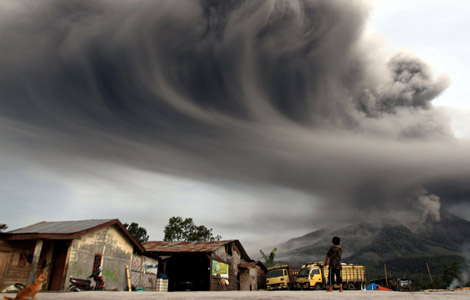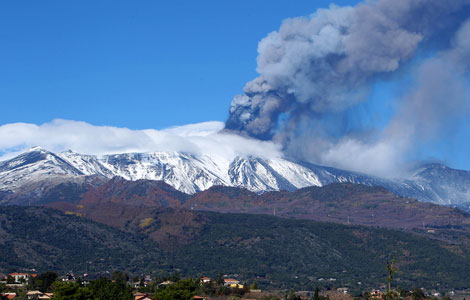

 |
|
US President Barack Obama makes a statement about an agreement reached with Iran on its nuclear program at the White House in Washington November 23, 2013. Obama said on Saturday that the deal between Iran and six major powers was an important first step toward a comprehensive solution to Iran's nuclear program. |
GENEVA — Iran struck a historic deal Sunday with the United States and five other world powers, agreeing to a temporary freeze of its nuclear program in the most significant agreement between Washington and Tehran in more than three decades of estrangement.
Iranian President Hassan Rouhani endorsed the agreement, which commits Iran to curb its nuclear activities for six months in exchange for limited and gradual sanctions relief, including access to $4.2 billion from oil sales. The six-month period will give diplomats time to negotiate a more sweeping agreement.
It builds on the momentum of the public dialogue opened during September's annual UN gathering, which included a 15-minute phone conversation between President Barack Obama and moderate-leaning Rouhani, who was elected in June.
The package includes freezing Iran's ability to enrich uranium at a maximum 5 percent level, which is well below the threshold for weapons-grade material and is aimed at easing Western concerns that Tehran could one day seek nuclear arms.
Obama hailed the pact's provisions, which include curbs on Iran's enrichment and other projects that could be used to make nuclear arms, as key to preventing Iran from becoming a nuclear threat.
"Simply put, they cut off Iran's most likely paths to a bomb," he told reporters in Washington.
In a nationally broadcast speech, Rouhani said the accord recognizes Iran's "nuclear rights" even if that precise language was kept from the final document because of Western resistance.
"No matter what interpretations are given, Iran's right to enrichment has been recognized," said Rouhani, who later posed with family members of nuclear scientists killed in slayings in recent years that Iran has blamed on Israel and allies.
Saying "trust is a two-way street," Rouhani insisted that talks on a comprehensive agreement should start immediately.
Iranian Foreign Minister Mohammad Javad Zarif, who led his country's delegation, called on both sides to see the agreement as an "opportunity to end an unnecessary crisis and open new horizons."
But initial reaction in Israel was strongly negative. Israel's prime minister, Benjamin Netanyahu, called the deal, a "historic mistake."
Speaking to his Cabinet, Netanyahu said Sunday that Israel is not bound by the deal and reserves the right to defend itself. That is a reference to possible military action against Iran.
Netanyahu has said the international community is giving up too much to Iran, which it believes will retain the ability to produce a nuclear weapon and threaten Israel.
US Secretary of State John Kerry, who joined the final negotiations along with the foreign ministers of Russia, China, France, Britain and Germany, said the pact will make US allies in the Middle East, including Israel, safer reducing the threat of war.
"Agreement in Geneva," he tweeted. "First step makes world safer. More work now."







